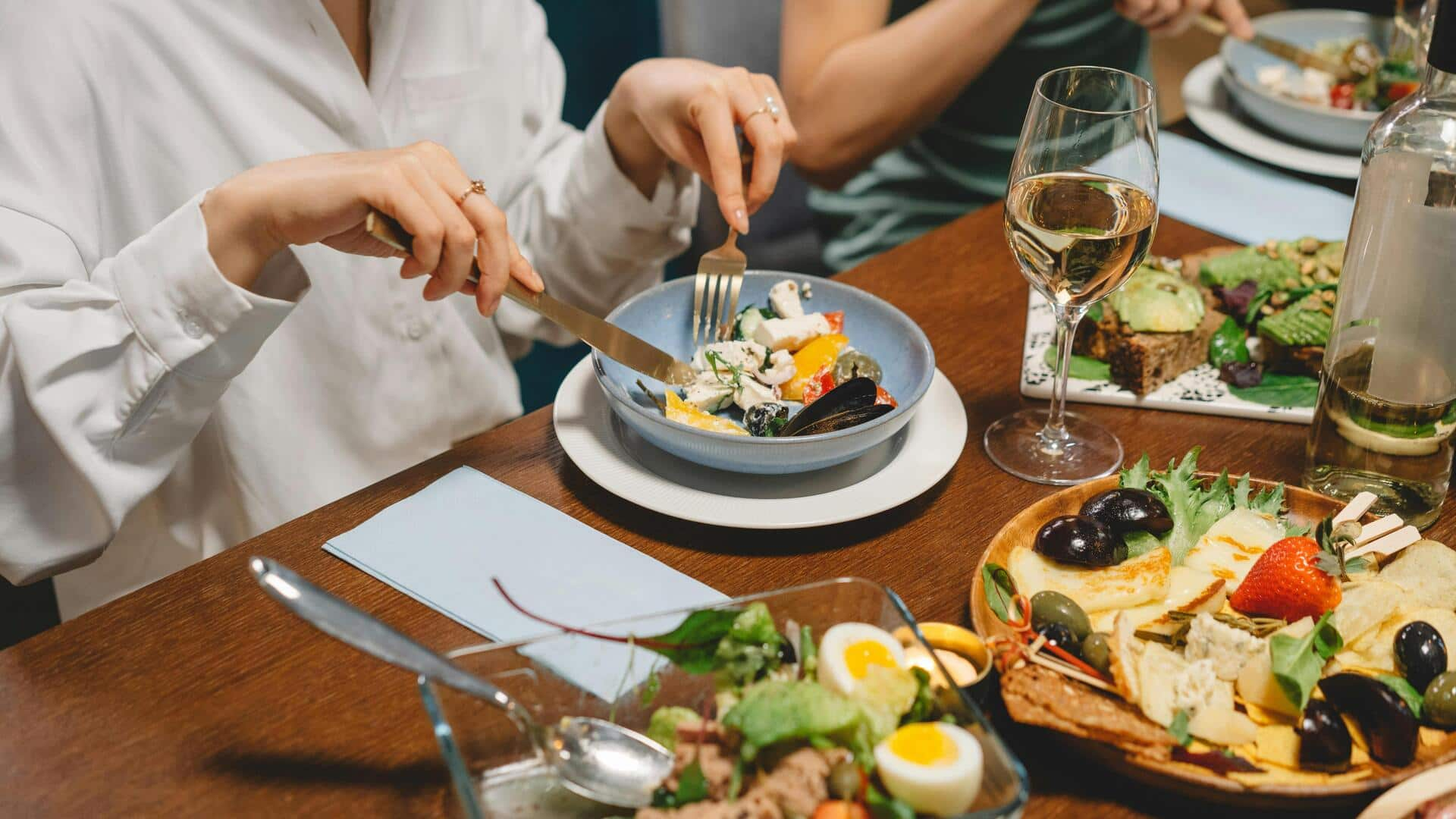
5 table etiquette rules everyone should know
What's the story
Mastering table etiquette is an essential skill that goes beyond the dining table. It reflects respect, consideration, and awareness of cultural norms. From knowing how to use cutlery properly to understanding the significance of napkins, these etiquettes can make any meal more enjoyable. Here are five essential table etiquette tips that everyone should know to make dining experiences pleasant for themselves and others.
#1
Proper use of cutlery
Using cutlery properly is the key to dining etiquette. Start with the outermost utensils for each course and work your way inward as the meal progresses. Keep your knife and fork in the correct hands; the knife in the right and fork in the left, unless you're left-handed. Never use cutlery to point or gesture, and keep it on the plate when not in use.
#2
Napkin placement and usage
The napkin is an important part of dining etiquette. When seated, place your napkin on your lap. Use it to dab your mouth, but don't use it as a handkerchief or wipe your face. If you have to leave the table during the meal, place your napkin loosely on your chair as a sign that you will return.
#3
Passing food politely
When passing food around the table, do it politely by passing items clockwise. Pass items like bread or condiments together instead of passing them individually at different times. When passing salt and pepper shakers, always pass them together even if only one is requested.
#4
Handling utensils correctly between bites
Between bites, leave utensils on the plate instead of placing them back down on the tablecloth or plate edge, which can be considered rude. This way, you avoid making a mess and show respect for those around you by keeping the dining area clean.
#5
Engaging in polite conversation
Engaging in polite conversation during meals is essential for creating a pleasant atmosphere. Keep topics light and inclusive, avoiding controversial subjects that may lead to discomfort among guests. Listen actively when others speak by maintaining eye contact and nodding occasionally to show understanding without interrupting them mid-sentence.